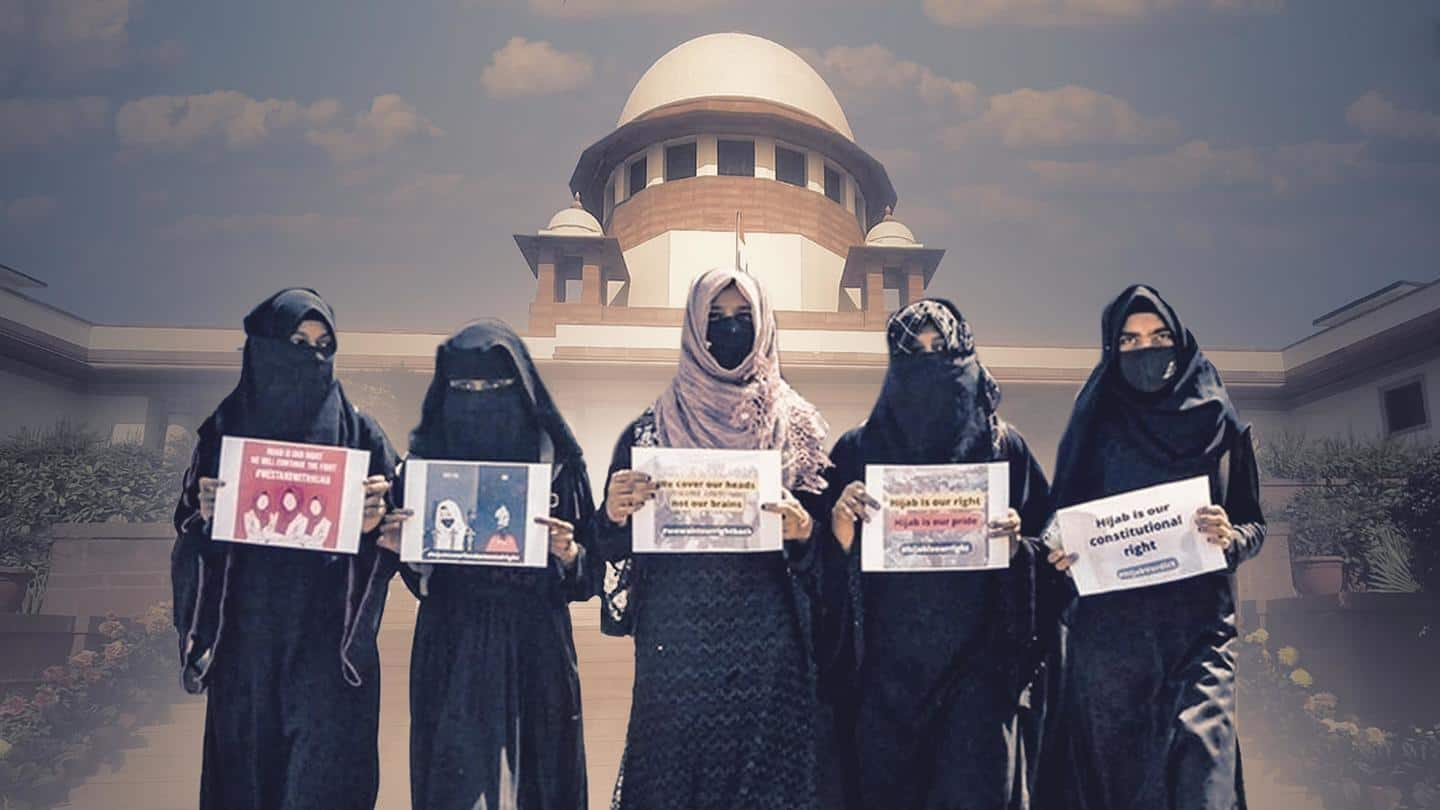
Hijab row: SC reserves verdict on Karnataka HC's 'controversial' ban
What's the story
After 10 days of rigorous hearings over the controversial hijab ban in Karnataka, the Supreme Court on Thursday reserved its verdict in the case.
The two-member bench of Justices Hemant Gupta and Sudhanshu Dhulia had been hearing the matter since September 4, during which both sides debated the issues of religion and political influence.
The top court will be announcing its verdict soon.
Context
Why does this story matter?
The hijab row in Karnataka's educational institutions sparked an intense nationwide debate earlier this year.
Some asserted the ban was in line with maintaining a uniform dress code at educational institutions as they are no place to practice religion.
However, those criticizing the prohibition said the hijab is an essential religious practice, alleging Muslims were being singled out. Later, the issue reached the SC.
Verdict
No date for verdict yet
The bench reserved its verdict on several petitions challenging the order by the Karnataka HC, and said, "Now it is time for us to do our homework."
More than 20 lawyers, including senior advocates Kapil Sibal, Salman Khurshid, and Sanjay Hegde, argued on behalf of the petitioners- mostly young girls fighting for the right to be allowed the head-dress in schools.
Rebuttal
Is Hijab an essential religious practice?
On the matter of hijab being an essential religious practice, senior advocate Dushyant Dave said, "For those who are believers it (hijab) is essential. For those who are not believers, it's not essential."
Petitioners' lawyers were presenting their rebuttal to the government's arguments, represented by Solicitor General Tushar Mehta.
They also argued that the directive is part of a pattern to marginalize minorities.
PFI
Government links hijab row to PFI
Dave also criticized the government for raising the "irrelevant" issue of the involvement of the Popular Front of India (PFI), a purported hardliner Muslim organization, and denied "conspiracies" behind street protests.
SG Mehta, on Wednesday, had argued that the PFI started a social media movement and encouraged students to wear the hijab.
"This is not a spontaneous act of few individual children," he said.
Background
What is the hijab controversy?
On December 28, 2021, six girl students of the government-run PU College in Udupi, Karnataka, were reportedly denied admission to classes because they were wearing a hijab.
They protested and later filed a petition before the HC. The hijab dispute soon spread to other places in Karnataka, too.
The matter was then referred to a three-judge bench of the high court in February.
Karnataka
Here's more about the HC order
On March 15, Karnataka HC upheld an order by the Karnataka government that effectively empowered government colleges to ban hijabs on campus.
The HC said that hijab is not a part of Islam's essential religious practices and that requiring students to be in uniform is reasonable.
The petitioners argued in the SC that this fails to ensure Articles 19 and 21 of the appellants.